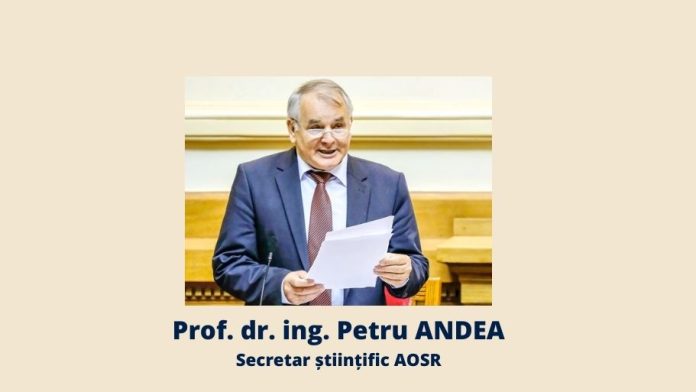The Academy of Romanian Scientists, like most of the cultural, scientific and artistic institutions in Romania, celebrated the National Culture Day in the middle of this month. There is a broad consensus that the complex events organized on this occasion should place on the pedestal of Romanian culture the exceptional personality of the poet Mihai Eminescu, rightfully attributing to him the reputation of universal poet, national poet, unparalleled poet.
It would be unfair to see in Eminescu only the poet. He also excelled in prose, journalism, politics and even science.
On the scientific dimension of Mihai Eminescu’s work, somewhat bypassed by literary exegetes, I would like to stop at this brief point of view.
I would support this fact by the scientific-literary manner in which Eminescu approaches, for example, the problem of the genesis of the Universe. I appreciate that for the Romanian reader, one of the most attractive and accessible forms, in full agreement with both the Big Bang theory and the biblical creation, was created by Mihai Eminescu in his Letter I, about 140 years ago, long before the term Big Bang was assimilated in science.
I am convinced that it is a delight for anyone to watch the talent with which Mihai Eminescu versifies a scientific theory.
What Mihai Eminescu says about the period before the Big Bang:
In the beginning, when being was not, nor non-being,
When everything was lacking in life and will,
When nothing was hidden, though it was still hidden…..
When penetrated by himself he rested the unpervaded.
Fu prăpstie? genune? Was it a cloud of water?
There were no people with the knowledge or the brains to understand it,
For there was a darkness like a sea without a ray,
But there were no eyes to see it and no eyes to see it
The shadow of the undone had not begun to unravel,
And within herself eternal peace reigned!…
Equally compelling are the lyrics describing the Big Bang itself:
But suddenly a dot moves… the first and alone. Here it is
How out of chaos he makes a mother, and he becomes the Father!…
Punctu-that movement point, much weaker than the frothy gob,
He’s the boundless lord over the edges of the world…
Eminescu also presents one of the scientifically accepted versions of the thermal death of the Universe.
Nowadays the thinker does not stop his mind
But in an instant the thought takes thousands of ages forward,
The sun, proud today, he sees it sad and red
How it closes like a wound through dark clouds,
How the planets all freeze and spin rebelliously in space
They, from the brakes of light and the sun escaped,
And the catapult of light in the depths have darkened,
Like autumn leaves all the stars have perished,
Dead time and stretches the body and becomes the neighborhood,
For nothing happens in the wilderness,
And in the night of the unborn everything falls, everything falls silent,
For in itself, reconciled, eternal peace begins anew…
Of course, Letter I is by no means the only poem by Eminesci that relies on scientific elements, which were absolute novelties at the time. This is how Eminescu captures, in the famous poem “Luceafărul”, elements of the theory of relativity concerning the contraction of time at high speeds:
” Turn on the Lighthouse. His wings grew in the sky
And thousands of years passed in as many moments.”
In the same poem, Eminescu suggests that the Luceafărul, in its flight, went beyond the edges of our Universe, going back before the Big Bang and out of time.
“For where it reaches there is no boundary, no place to know
And time tries in vain from the hollows to be born”
A poetic, but also rigorously scientific, image we find in the poem “To the Star” about the speed of light in the cosmic void:
To the star that has risen
It’s such a long way
That it took thousands of years
Light to reach.
Here, then, are just a few excerpts from Eminesci’s work through which, disturbingly, we discover that the poet was deeply aware of the incipient forms of future scientific theories that revolutionised human knowledge.


